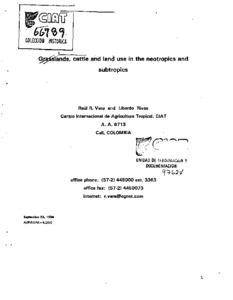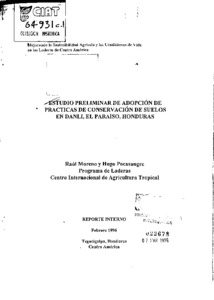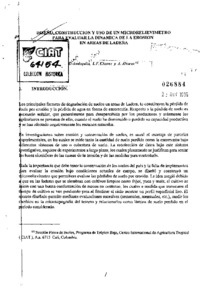Mission
To reduce hunger and poverty, and improve human nutrition in the tropics through research aimed at increasing the eco-efficiency of agriculture.
People
CIAT’s staff includes about 200 scientists. Supported by a wide array of donors, the Center collaborates with hundreds of partners to conduct high-quality research and translate the results into development impact. A Board of Trustees provides oversight of CIAT’s research and financial management.
Values
- Shared organizational ethic
- We respect each other, our partners, and the people who benefit from our work. We act with honesty, integrity, transparency, and environmental responsibility in all of our joint endeavors.
- Learning through partnerships
- We work efficiently and pragmatically together and with partners. Considering our diversity to be a key asset, we adapt readily to change and strive to improve our performance through continuous learning.
- Innovation for impact
- We develop innovative solutions to important challenges in tropical agriculture, resulting in major benefits for the people who support, participate in, and profit from our work.
Members:
Resources
Displaying 626 - 630 of 958Grasslands, cattle and land use in the neotropics and subtropics
The paper reviews trends in land use change in the tropics and subtropics of Latin America and the Caribbean, and their relation to the evolution of the cattle industry in the region. It is posited that horizontal expansion is nearly finished, and that cattle sector, and the grasslands that support it, are beginning to intensify. Nevertheless a number of paradoxes subsist and are discussed. Most notable among these are the interactions among land speculation, a characteristic aspect of much of the extensive cattle industry throughout history, with policies and technologies.






